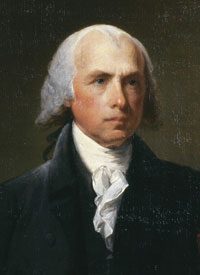
The “Principles of 98,” as they came to be known, are rarely discussed in modern history lectures even though these are integral to understanding how our federal Constitution was intended to function. These are the principles of state interposition or nullification that assert that if the federal government fails to check itself through one of its three branches, then it would be up to the states to rein in the feds.
The main basis for the theory is that the states created the national government when they joined the compact and not the other way around. The states therefore retained the power to judge for themselves the constitutionality of federal laws and reserved the right to refuse to enforce them if they went beyond their constitutionally delegated powers. As a matter of fact, nullification was used even before the implementation of the Constitution when the Colonists nullified laws made by the British Monarchy. The concept of a state nullifying a federal law simply means that a state refuses to comply with the law or permit its enforcement within state boundaries.
The man widely regarded as the “Father of the Constitution,” James Madison, described just how a federal system would work in his essay Federalist No. 51. Madison, encouraging his fellow countrymen to ratify the newly drafted Constitution, described a system of horizontal as well as vertical checks and balances between the federal and state governments — a system known as federalism. “Hence, a double security arises to the rights of the people. The different governments will control each other, at the same time that each will be controlled by itself.”
Madison, joined by Thomas Jefferson, would later go on to expand upon this in the famous Kentucky and Virginia Resolutions of 1798. The federal government had recently passed the blatantly unconstitutional and shameful Alien and Sedition Acts to silence and intimidate political enemies. Those despicable acts were instituted by advocates of unwritten constitutional power and a more robust central government. Both Jefferson and Madison argued that the states constitutionally had the right to refuse not only to comply with such unconstitutional actions of the federal government, but also to actively prevent the feds from enforcing them within their state boundaries.
These visionaries and their resolutions gave a voice to a peaceful revolution of constitutional principles that would govern this great nation for years to come. Many states have in fact utilized state nullification to check the federal government throughout the history of our Republic. From the Fugitive Slave Act to unpopular tariffs, states did indeed nullify federal laws they found to be unconstitutional.
Nullification has started to be mentioned in the news, as states have once more started to utilize the practice to resist federal overreaching. Many states have either passed or proposed legislation or amendments to their state constitutions that nullify federal laws in the areas of firearms, medical marijuana, and healthcare, to name just a few.
Thumbnail graphic: James Madison
Related article:



